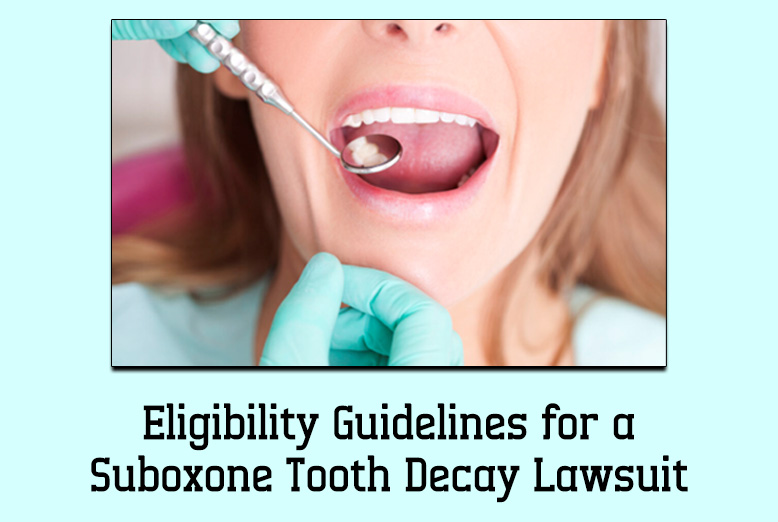If you were prescribed Suboxone and experienced severe dental issues, you might be eligible to file a Suboxone tooth decay lawsuit. This type of legal action addresses claims that the medication, used to treat opioid dependence, caused serious oral health problems such as tooth decay, enamel erosion, or gum disease.
Visit Lawsuit Legal News for Suboxone tooth decay lawsuit updates and recent legal developments on it. Furthermore, understanding the eligibility requirements is essential for anyone considering pursuing such a claim.
Prescription History
Eligibility begins with a verified prescription of Suboxone. Individuals must have been prescribed either the sublingual film or tablet formulations to treat opioid dependence. It is important that prescriptions were taken before June 2022, when the U.S. Food and Drug Administration (FDA) updated Suboxone labeling to include warnings about potential dental side effects. Documentation of prescriptions is critical to establish the connection between the drug and resulting dental issues.
Duration and Compliance of Use
To qualify, Suboxone should have been used as directed by a healthcare provider for a consistent period, typically several months. Compliance with the prescribed regimen strengthens the link between the medication and dental complications. Irregular use or failure to follow medical instructions may reduce eligibility for a lawsuit. Legal professionals often evaluate prescription records to confirm that the medication was taken according to medical guidance.
Onset of Dental Issues
A key factor in eligibility is the timing of dental problems. Severe dental issues, including tooth decay, enamel erosion, gum disease, or tooth loss, must have developed after beginning Suboxone treatment. The onset of these issues should clearly correspond to the period during which the medication was used. Establishing this timeline helps demonstrate a causal relationship between Suboxone and the dental damage.
Prior Dental Health
Individuals who had minimal dental problems before starting Suboxone are more likely to qualify for a lawsuit. A documented history of good oral health can help show that Suboxone contributed to the onset of serious dental complications. Conversely, pre-existing dental issues or chronic oral conditions may limit eligibility.
Evidence of Causation
Claimants must provide proof linking Suboxone to dental issues. Supporting evidence may include dental records documenting treatments and diagnoses, prescription history confirming Suboxone use, and statements from healthcare providers that connect the dental problems to the medication. Photographs of dental damage, expert opinions from dental specialists, and detailed medical notes can further strengthen the case. Comprehensive documentation significantly improves credibility and the likelihood of a favorable outcome in court.
Statute of Limitations and Exclusions
Each state has a statute of limitations that sets the time frame for filing a lawsuit. Acting promptly is essential to preserve the right to legal recourse. Certain factors may disqualify individuals, including concurrent use of other substances that affect dental health, non-compliance with prescriptions, or significant pre-existing dental problems.
Conclusion
If you meet the outlined eligibility requirements, you may have grounds for a Suboxone tooth decay lawsuit. Consulting a legal professional specializing in pharmaceutical litigation is crucial to assess your case, gather evidence, and navigate the legal process effectively. Prompt action ensures your rights are protected and maximizes your potential for compensation.







